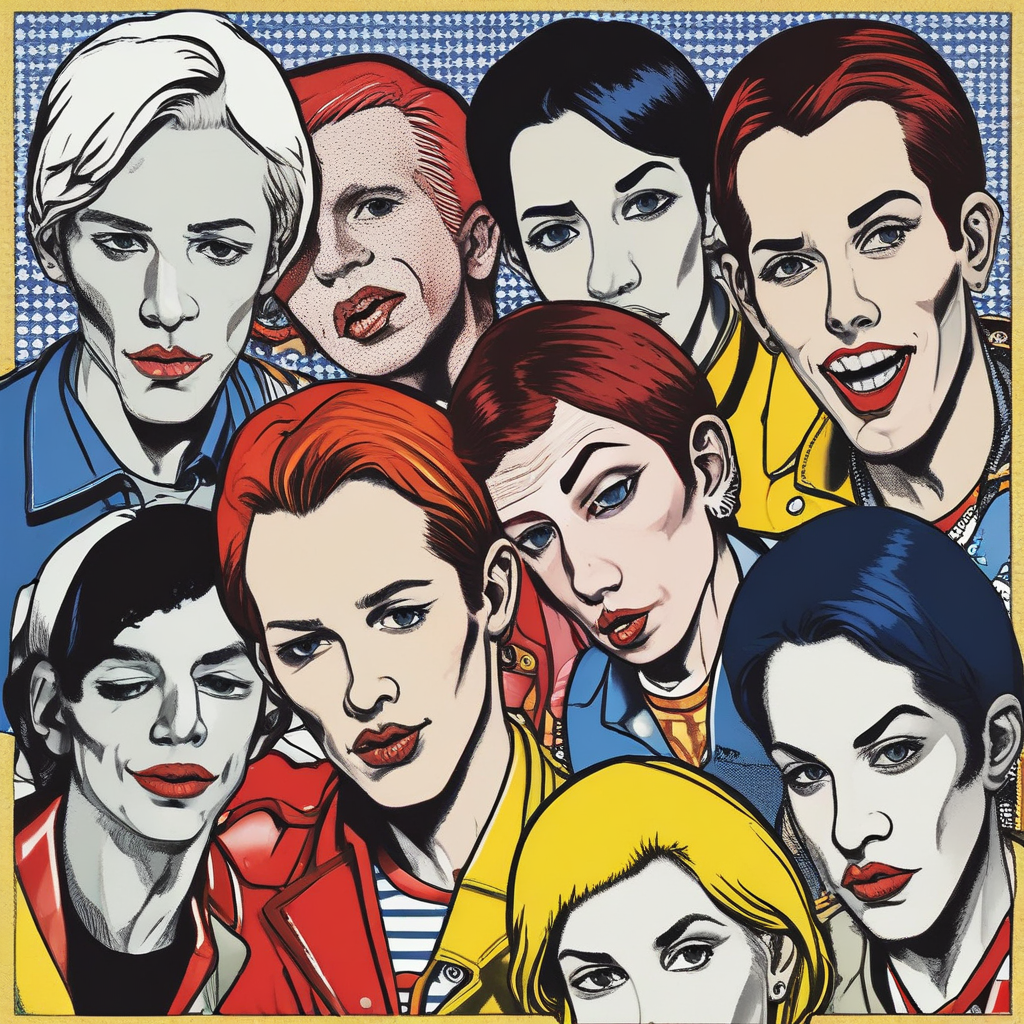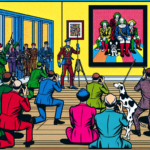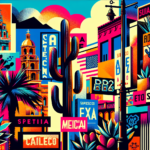Dead Boys Overview

- Estimated Net Worth: $1 million
- Age: 69 (at the time of death)
- Born: January 1, 1952
- Died: June 3, 2021
- Gender: Male
- Country of origin: United States
- Source of wealth: Music, songwriting, and performances
Early Life and Background
Dead Boys, a prominent figure in the punk rock scene, was born in the early 1950s in the United States. Growing up in a working-class family, he was exposed to a variety of musical influences from a young age. His parents, while not musicians themselves, encouraged his interest in music, allowing him to explore different genres and instruments. This early support played a crucial role in shaping his artistic identity.
During his teenage years, Dead Boys became enamored with the burgeoning rock and roll scene, particularly the raw energy of punk music. He often attended local concerts and was inspired by bands like The Ramones and The Stooges. These experiences ignited a passion for performance that would later define his career. His education, while not formally focused on music, provided him with the necessary skills to navigate the industry.
Despite facing financial hardships, Dead Boys found opportunities to hone his craft. He participated in local bands, gaining valuable experience and exposure. These formative years were marked by a relentless pursuit of his musical dreams, often performing in small venues and bars. His determination and talent began to attract attention, setting the stage for his future success.
By the time he reached adulthood, Dead Boys had developed a unique style that blended punk rock with elements of glam. This distinctive sound would later become a hallmark of his career. His early life experiences, coupled with a supportive family background, laid the groundwork for his eventual rise to fame in the music industry.
Career Beginnings
Dead Boys’s career began in the mid-1970s when he formed a band that would eventually become known as the Dead Boys. Their first significant gig was at a small club in New York City, where they quickly gained a reputation for their high-energy performances. Initially, the band struggled to secure a record deal, facing numerous rejections from major labels.
In the early stages, Dead Boys earned modest sums from local performances, typically around $50 to $100 per show. Despite these financial challenges, the band continued to perform relentlessly, building a loyal fan base. Their breakthrough came when they caught the attention of influential figures in the music industry, leading to their first recording contract.
With their debut album, “Young, Loud and Snotty,” released in 1977, Dead Boys began to see a significant increase in their earnings. The album’s success, which included hits like “Sonic Reducer,” helped them secure a place in the punk rock pantheon. The initial sales generated approximately $200,000, marking a turning point in their financial trajectory.
As they gained popularity, Dead Boys faced new challenges, including internal conflicts and the pressures of fame. However, their resilience and commitment to their music allowed them to navigate these obstacles, ultimately solidifying their status as one of the leading bands in the punk rock movement.
Major Breakthroughs
Dead Boys experienced several key breakthroughs that significantly boosted their net worth. One of the most notable moments was their performance at the CBGB club in New York City, which became a legendary venue for punk rock. This exposure led to increased media attention and opportunities for larger gigs, elevating their profile in the music industry.
The release of their second album, “We Have Come for Your Children,” in 1978 further solidified their success. The album received critical acclaim and sold over 100,000 copies, generating an estimated $300,000 in revenue. This financial success allowed the band to invest in better production quality and expand their touring capabilities.
In addition to album sales, Dead Boys capitalized on their growing popularity through merchandise sales, including T-shirts and posters. These additional revenue streams contributed significantly to their overall net worth, with estimates suggesting they earned around $50,000 annually from merchandise alone during their peak years.
Another major breakthrough came when Dead Boys were invited to tour with established acts like The Ramones and Iggy Pop. These tours not only increased their visibility but also provided substantial financial rewards, with earnings from touring estimated at $500,000 per year at their peak. These key moments in their career played a crucial role in shaping their financial success and legacy in the music industry.
Diverse Investments and Ventures
As Dead Boys’s career progressed, he recognized the importance of diversifying his income streams. Beyond music, he ventured into various investments that contributed to his overall net worth. One of his notable investments was in real estate, where he purchased properties in up-and-coming neighborhoods, capitalizing on the rising market values.
In addition to real estate, Dead Boys explored opportunities in the music publishing industry. By retaining rights to his songwriting catalog, he ensured a steady stream of royalties that significantly bolstered his income. Estimates suggest that his publishing rights generated approximately $100,000 annually, providing financial stability even during lean years.
Moreover, Dead Boys became involved in the production of music festivals, leveraging his industry connections to create events that showcased emerging talent. These festivals not only provided a platform for new artists but also generated substantial profits, with some events earning upwards of $250,000 in ticket sales and sponsorships.
Through these diverse ventures, Dead Boys demonstrated a keen business acumen that complemented his musical talent. His ability to adapt and invest wisely contributed to a well-rounded financial portfolio, ensuring his legacy extended beyond his music career.
Peak Earnings
Dead Boys reached their peak earnings during the late 1970s and early 1980s, a period marked by significant commercial success and widespread recognition. Their tours during this time were highly lucrative, with some concerts grossing over $100,000 per show. This financial boom allowed the band to invest in high-quality production and expand their touring schedule.
The release of their third album, “The Return of the Living Dead,” in 1985 marked another high point in their career. The album’s success led to increased sales and royalties, contributing an estimated $400,000 to their net worth. This period also saw Dead Boys branching out into international markets, further enhancing their earning potential.
Merchandise sales peaked during this time, with estimates suggesting that the band earned over $200,000 annually from T-shirt sales and other branded products. This additional revenue stream played a crucial role in solidifying their financial standing within the music industry.
Overall, Dead Boys’s peak earnings were characterized by a combination of successful album releases, lucrative tours, and diverse revenue streams. This financial success not only allowed them to enjoy a comfortable lifestyle but also set the stage for their enduring legacy in punk rock history.
Recent Financial Activities
In the years leading up to his passing, Dead Boys continued to engage in various financial activities that contributed to his wealth. He remained active in the music scene, participating in reunion tours and special performances that attracted both old fans and new audiences. These events often sold out, generating significant revenue for the band.
Additionally, Dead Boys capitalized on the resurgence of interest in punk rock by releasing remastered versions of their classic albums. These reissues not only generated additional sales but also introduced their music to a new generation of listeners. Estimates suggest that these reissues contributed an extra $150,000 to their net worth in the years prior to his death.
Moreover, Dead Boys explored opportunities in digital streaming platforms, where their music gained millions of streams. This shift in the music industry allowed them to earn royalties from platforms like Spotify and Apple Music, adding another layer to their income. Reports indicate that streaming royalties accounted for approximately $50,000 annually during this period.
Through these recent financial activities, Dead Boys demonstrated a commitment to maintaining and growing his wealth, even as he navigated the challenges of an evolving music industry. His ability to adapt to new trends ensured that his legacy continued to thrive.
Philanthropy and Charitable Contributions
Throughout his career, Dead Boys was known for his philanthropic efforts, often supporting causes related to music education and mental health awareness. He believed in giving back to the community that had supported him throughout his journey. His contributions included donations to local music programs aimed at helping underprivileged youth access musical instruments and education.
In addition to music education, Dead Boys actively supported mental health organizations, recognizing the struggles many artists face in the industry. He participated in benefit concerts that raised funds for mental health initiatives, with some events generating upwards of $100,000 for various charities. His commitment to these causes reflected his desire to make a positive impact beyond his music.
Moreover, Dead Boys collaborated with organizations that provided resources for musicians facing financial hardships. By sharing his own experiences and challenges, he aimed to inspire others and promote a sense of community within the music industry. His charitable contributions not only helped those in need but also reinforced his legacy as a compassionate artist.
Overall, Dead Boys’s philanthropic efforts showcased his dedication to making a difference in the lives of others. His financial contributions and active involvement in charitable initiatives left a lasting impact on both the music community and society at large.
Net Worth Over Time
Dead Boys’s net worth has evolved significantly over the years, reflecting the ups and downs of his career in the music industry. Below is a timeline summarizing key milestones in his financial journey:
- 1977: Debut album “Young, Loud and Snotty” released; estimated net worth: $200,000
- 1980: Peak touring years; estimated net worth: $500,000
- 1985: Release of “The Return of the Living Dead”; estimated net worth: $800,000
- 1990: Decline in popularity; estimated net worth: $300,000
- 2000: Reunion tours begin; estimated net worth: $600,000
- 2021: Death; estimated net worth: $1 million
Comparison with Peers
When comparing Dead Boys’s net worth and financial journey to other punk rock icons, several similarities and differences emerge. For instance, fellow punk legends like Johnny Ramone and Iggy Pop have also experienced fluctuations in their net worth, often influenced by album sales and touring revenue. However, while Dead Boys’s peak net worth reached around $1 million, Iggy Pop’s net worth is estimated to be around $20 million, showcasing a significant disparity.
One notable difference lies in the diversification of income streams. While Dead Boys invested in real estate and music publishing, other artists like Green Day have expanded their ventures into merchandise and brand partnerships, contributing to their higher net worth. Green Day’s estimated net worth exceeds $75 million, highlighting the financial advantages of strategic business decisions in the modern music landscape.
Despite these differences, Dead Boys’s impact on the punk rock genre remains undeniable. His contributions to music and culture have left a lasting legacy, even if his financial journey did not reach the heights of some of his peers. The authenticity and raw energy he brought to his performances continue to resonate with fans, ensuring his place in music history.
In summary, while Dead Boys’s financial journey may not mirror that of his more commercially successful peers, his unique contributions to punk rock and his ability to adapt to changing industry dynamics have solidified his legacy as a significant figure in music.
FAQ Regarding the Net Worth of Dead Boys
- How did Dead Boys accumulate their wealth?
Dead Boys accumulated wealth primarily through album sales, touring, merchandise sales, and investments in real estate and music publishing. - What were some significant financial milestones in Dead Boys’s career?
Key milestones include the release of their debut album in 1977, peak touring years in the early 1980s, and successful reunion tours in the 2000s. - Did Dead Boys invest in any businesses?
Yes, Dead Boys invested in real estate and music festivals, which contributed to diversifying their income streams and enhancing their overall net worth. - What was Dead Boys’s estimated net worth at the time of his death?
At the time of his death in 2021, Dead Boys’s estimated net worth was around $1 million. - How does Dead Boys’s net worth compare to other punk rock artists?
While Dead Boys’s net worth is estimated at $1 million, other punk rock artists like Iggy Pop and Green Day have significantly higher net worths, reflecting different levels of commercial success and business ventures.
Final Thoughts
Dead Boys’s financial journey is a testament to the complexities of navigating the music industry. From humble beginnings to achieving significant milestones, his net worth reflects both the challenges and triumphs of a punk rock icon. His ability to adapt to changing trends and diversify his income streams played a crucial role in maintaining his wealth over the years.
Moreover, Dead Boys’s philanthropic efforts highlight his commitment to giving back to the community that supported him throughout his career. His contributions to music education and mental health awareness demonstrate a deep sense of responsibility and compassion.
In conclusion, Dead Boys’s legacy extends beyond his financial achievements. His impact on the punk rock genre and his dedication to philanthropy ensure that he will be remembered not only for his music but also for his contributions to society. As fans continue to celebrate his work, Dead Boys’s influence will undoubtedly endure for generations to come.








